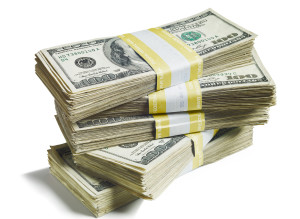WASHINGTON -- In Iowa, a television station recently created a new program so it could sell more advertising to political campaigns, party committees and independent groups bombarding voters in this year's battleground states.
Original Article
Source: huffingtonpost.com/
Author: Paul Blumenthal, Aaron Bycoffe
The advertising crush is being driven in large part by big-spending independent groups, including super PACs and nonprofits, which are on pace to set a record for independent spending in a midterm election cycle. The groups are set to spend more than $600 million -- double their expenses from the 2010 elections. Super PACs accounted for $332 million in spending through the end of October, according to the Center for Responsive Politics.
Massive contributions from the wealthiest Americans, large corporations, dark money nonprofits and labor unions are behind this super PAC spending binge. A review of Federal Election Commission records by The Huffington Post found that 140 donors who gave more than $500,000 each to super PACs accounted for $365.5 million in super PAC donations as of Oct. 15 -- 61 percent of all super PAC contributions in the 2014 cycle.
The top donor to these unlimited money groups is Thomas Steyer, the billionaire environmentalist and former hedge fund executive. Steyer launched his own super PAC last year as part of an effort to elect politicians who will act to slow climate change. He has pumped $74.2 million into his own group, NextGen Climate Action, and other super PACs supporting Senate Democrats.
Steyer is approaching the $100 million given by casino oligarch Sheldon Adelson and his family in the 2012 election. This big giving is part of an emerging trend of Democratic-oriented mega-donors dominating the disclosed unlimited money scene.
Overall, mega-donors giving solely to Democratic Party groups pumped $228.4 million into super PACs, or 62 percent of the total, compared with $109.6 million for Republican mega-donors.
This is a significant change from the 2012 election. At this point in 2012, Republican mega-donors were the source of 61 percent of all contributions over $500,000.
By no means does this mean Democrats are winning on the independent spending front. Republicans are buoyed by spending from dark money nonprofits. These groups are not bound by disclosure laws, so it's impossible to know the size or number of mega-donors giving to them. Some, like the Koch brothers and Adelson, have been reported to be behind millions in undisclosed spending.
The influx of Democratic mega-donor money has helped the party close the gap in independent spending as it works to protect its Senate majority in a tough election.
According to the Center for Responsive Politics, Democratic-aligned groups accounted for just 28.2 percent of all independent spending by non-party groups in 2012, while Republicans made up 69.4 percent of spending. So far in 2014, Democratic groups capture 38.9 percent of the independent spending and Republicans are down to 54.3 percent.
Aside from the partisan donors who dominate the list, there are a handful of givers to super PACs who back both parties. These include former New York Mayor Michael Bloomberg, the third-largest super PAC donor with more than $20 million contributed. Bloomberg's Independence USA PAC is supporting both Republicans and Democrats at the federal and state level. He has also donated to Senate Majority PAC, the main unlimited money arm of the Senate Democratic party leadership.
Others giving to both sides include Facebook and Napster billionaire Sean Parker, energy investment billionaire John Arnold, and labor unions and business trade associations including the United Brotherhood of Carpenters and Joiners and the National Association of Realtors.
Steyer, Bloomberg, Parker and Arnold are part of a strong contingent of Forbes 400 billionaires who are putting their money into politics this cycle. Of the 95 individuals donating to super PACs, 34 are billionaires. These plutocrats favor Republicans.
Billionaires lined up on the Democratic side include Steyer, James Simons, George Soros, David Bonderman and Laurie Michaels, Reid Hoffman, Jon Stryker, Pat Stryker, John Doerr, Robert and Ann Bass, Marc Benioff and Laurene Powell Jobs.
In addition to Adelson and Charles and David Koch, Republican billionaire super PAC mega-donors include Paul Singer, Joe Ricketts, Joseph Craft, Robert McNair, Warren Stephens, Jerrold Perenchio, Ken Griffin, Linda McMahon, Seth Klarman, B. Wayne Hughes, Daniel Loeb, Paul Foster, Diane Hendricks, Julian Robertson, Richard DeVos and his family, Bernard Marcus and Robert Rowling.
Super PACs were created by the Federal Election Commission after the Supreme Court's 2010 Citizens United decision, which holds that spending by independent groups funded by corporations could not lead to corruption or even its appearance. A lower court ruling based entirely on Citizens United extended the decision to individuals, allowing them to pool unlimited sums in independent political groups.
Since then, the groups have been dominated by billionaires, unions, and to a lesser extent, corporations.
In September, Chevron Corp., the oil giant, made a $1 million donation to the Congressional Leadership Fund, a super PAC dedicated to electing Republicans to the House.
The Republican-led House has worked hard to roll back Environmental Protection Agency regulations of greenhouse gas emissions and to protect oil and gas company tax breaks. One House committee has gone on record refusing to acknowledge climate change.
Other large corporate contributions came from Mountaire Corp., Contran Corp., Rooney Holdings and Weaver Holdings.
See below for the full list of super PAC mega-donor giving from Jan. 1, 2013 through Oct. 15, 2014. This list excludes donations from super PACs to other super PACs:
Source: Federal Election Commission.
Source: huffingtonpost.com/
Author: Paul Blumenthal, Aaron Bycoffe

No comments:
Post a Comment